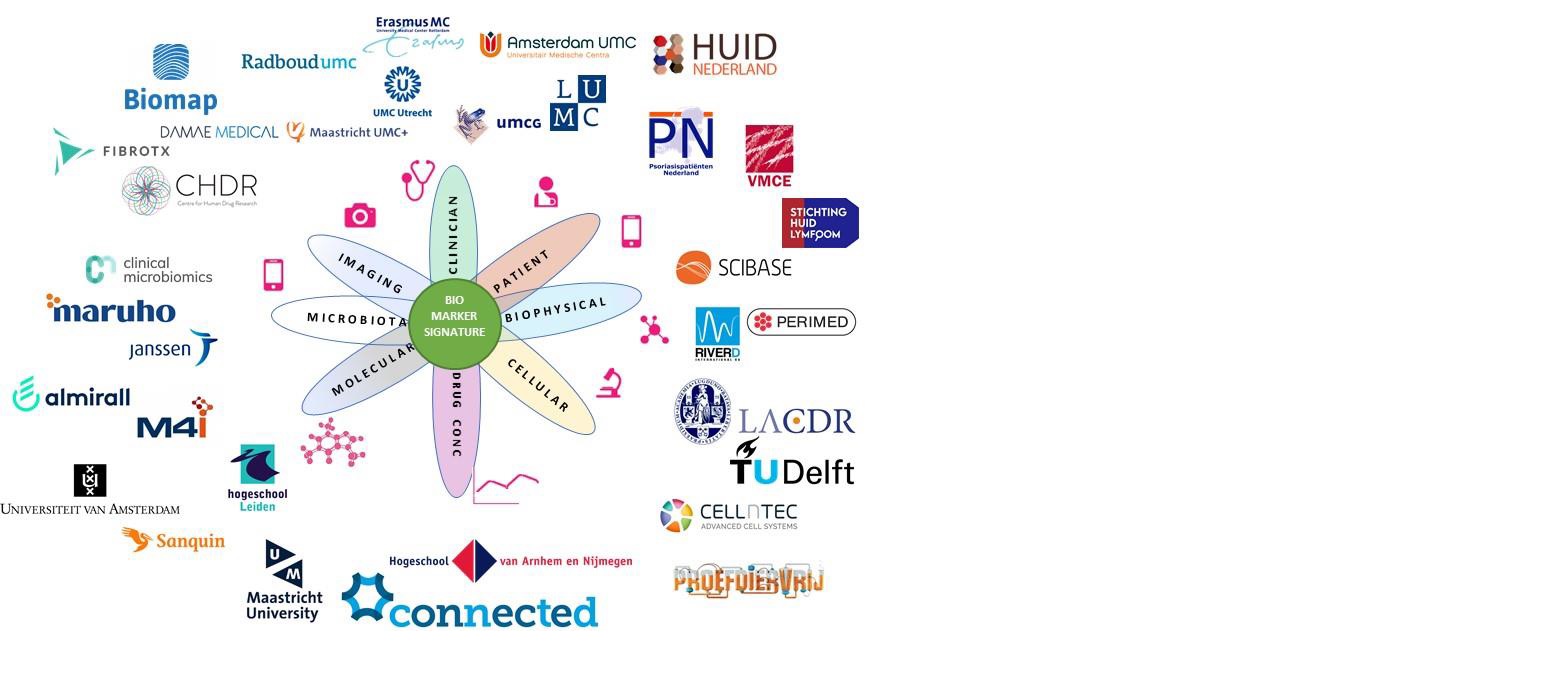UM to coordinate nationwide research project to unravel skin diseases
The Dutch Research Council (NWO) has, within the framework of Research along Routes by Consortia (NWA-ORC), awarded the research project Next Generation Immuno-Dermatology (NGID) with a prestigious grant of 11.7 MEuro. NGID is a nationwide, large-scale project to unravel novel biomarkers for six different skin diseases, coordinated by Maastricht University. These biomarkers will drive a high-tech, patient-centric approach in clinical practice.
In the Netherlands, over 2.5 million patients suffer from chronic inflammatory skin diseases. Although not life-threatening, the personal impact and socio-economic costs of these chronic conditions are very high. The biggest problem is that many treatments are not suited for every patient and often do not work.
NGID will tackle this problem and will develop the right care for the right patient at the right time. Within this 6-year project six inflammatory skin diseases will be investigated in ultra-high detail. For this approach, a unique, international consortium consisting of scientific institutes, universities, high-tech companies, hospitals, patient associations and (bio)pharmaceutical industry has been setup. Dermatologists from all Dutch University Medical Centers will be connected to biologists, bio-informaticians, statisticians, behavioural scientists, communication researchers and of course to the patient. By means of a new data analysis and integration approach, NGID will make patient-specific fingerprints that will guide the best care for the individual patient in the future.
Maastricht
Researchers from both Maastricht University and the Maastricht University Medical Center (MUMC+) will work closely with the other partners of this nation-wide consortium. The Maastricht MultiModal Molecular Imaging institute (M4I) has an important role in identifying novel markers for these diseases. Under the guidance of Dr. Eva Cuypers, Prof. Ron Heeren and Dr. Rob J. Vreeken several researchers will deploy mass spectrometry based imaging modalities to identify biomarkers for disease identification and for following the effect of treatment. Dr Johan van Soest, Prof. André Dekker and Dr. Leonhard Wee (Maastro) will play an important role in the integration of the diverse data sets comprising e.g. clinical-, omics- and social interaction- data. Advanced data fusion techniques and deep-learning algorhytns will point us towards these novel markers. Dr. Martine Summer-Kutmon (BIGCAT/MACSBIO) will focus on the de-regulated metabolic pathways which are underlying the various diseases. Dr. Antoni Gostyński from MUMC+ will as staff dermatologist be deeply involved in the efforts from the clinical side of the project.
Next, the UM will house the project management of this nation-wide project and create a true ‘dermatology-stamp’ in Maastricht.

Also read
-
Mental health services urgently need to address lifestyle
Mental health services need to increase investment in lifestyle interventions to improve care and narrow the 15-year life-expectancy gap for people with mental health conditions, according to a new report by The Lancet Psychiatry Commission. Maastricht University scientist Jeroen Deenik is one of...

-
Study Smart gets Dutch Education Premium
Maastricht University's (UM) interfaculty educational innovation project Study Smart is one of the three winners of the Dutch Education Premium 2025. This was announced on Tuesday during the Comenius festival in The Hague.

-
Most prestigious European grant to two UM scientists
Two Maastricht University professors are to receive the most prestigious European research grant for individual researchers: an ERC Advanced Grant, worth over €2.5 million. They are Lorenzo Moroni (MERLN) and Alexander Sack (FPN).
